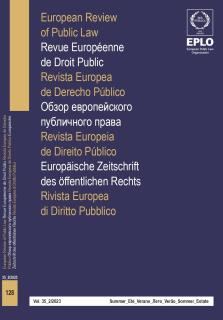
Constitutional Law / Droit constitutionnel 2021-2022
The Netherlands / Pays-Bas
Max Vetzo
PhD Candidate in Constitutional Law at Utrecht University (m.j.vetzo@uu.nl)
In 2021 and 2022 the COVID-19 pandemic still posed numerous constitutional challenges. The Temporary Corona Act raised questions of a democratic nature, while at the same time being under attack for not providing the executive enough leeway to combat the pandemic effectively. On a more structural level, the pandemic highlighted the inadequacy of the Dutch system of emergency law, which is outdated and in need of revision. The Childcare benefit scandal put the spotlight on other deficiencies in the Dutch constitutional system, including the lack of protection against discriminating algorithms and the government’s narrow reading of the constitutional right to information of Members of Parliament. After the 2022 elections the primary responsibility to take up these challenges was entrusted to the new Cabinet Rutte IV, that took office after the longest process of cabinet formation in Dutch parliamentary history. On the judicial level, the courts adjudicated cases regarding the compatibility of tax legislation in light of human rights standards (Article 1 of Protocol 1 to the European Convention on Human Rights), the legality of important Covid-19 measures and (more exceptionally) a noteworthy intra-parliamentary conflict. Also, a large number of amendments passed through the rigid amendment process, including a new ‘general provision’, amendments to fundamental rights (such as the right to non-discrimination) and changes to the amendment process itself.
En 2021 et 2022, la pandémie de COVID-19 a encore posé de nombreux défis constitutionnels. La loi temporaire Corona a soulevé des questions d’ordre démocratique, tout en étant critiquée pour ne pas laisser à l’exécutif de marge de manœuvre suffisante pour lutter efficacement contre la pandémie. D’un point de vue plus structurel, la pandémie a mis en évidence l’inadéquation du système néerlandais de droit d’urgence, qui est dépassé et doit être révisé. Le scandale des allocations familiales a mis en lumière d’autres lacunes du système constitutionnel néerlandais, notamment le manque de protection contre les algorithmes discriminatoires et l’interprétation restrictive par le gouvernement du droit constitutionnel à l’information des membres du Parlement. Après les élections de 2022, la responsabilité première de relever ces défis a été confiée au nouveau gouvernement Rutte IV, qui a pris ses fonctions après le plus long processus de formation d’un gouvernement de l’histoire parlementaire néerlandaise. Sur le plan judiciaire, les tribunaux ont statué sur des affaires concernant la compatibilité de la législation fiscale avec les normes en matière de droits de l’homme (article premier du Protocole no 1 à la Convention européenne des droits de l’homme), la légalité d’importantes mesures liées au Covid-19, et (plus exceptionnellement) un conflit intra-parlementaire notable. En outre, un grand nombre d’amendements ont été adoptés dans le cadre de la procédure rigide d’amendement, y compris une nouvelle “disposition générale”, des amendements aux droits fondamentaux (tels que le droit à la non-discrimination) et des modifications à la procédure d’amendement elle-même.





















